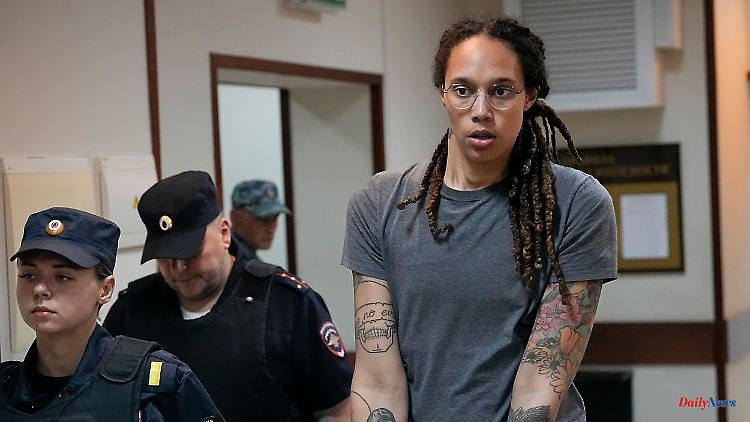American basketball player Brittney Griner's lawyers are concerned. As they report, the 32-year-old was transferred to a penal camp by the Russian authorities. Griner was sentenced to nine years in prison for drug smuggling in early August.
US basketball player Brittney Griner, who has been jailed in Russia, has been transferred to a prison camp. This was announced by the lawyers of the 32-year-olds. The two-time Olympic champion was sentenced to nine years in prison for drug smuggling in early August. "We have no information as to their exact whereabouts or ultimate destination," Griner's attorneys said. The basketball player had already been transferred from a detention center on November 4, and now she is "on her way to a penal camp," it said.
The Griner case has long since become a political issue. US Secretary of State Antony Blinken has approached Russia to negotiate an agreement to release Griner. White House press secretary Karin Jean-Pierre reiterated that Russia had received a "substantial offer." Griner has been in jail since February. She was arrested at Moscow's Sheremetyevo Airport for carrying vape cartridges containing cannabis oil in her luggage. Marijuana is banned in Russia, and Griner said she had permission from a US doctor to use medicinal cannabis due to her multiple injuries.
An appeal against the verdict was rejected at the end of October. The US government led by President Joe Biden, which has been campaigning for Griner's release for months, described the court's decision on the rejected appeal as "another legal sham process" and that Griner was being held "wrongly and under unbearable circumstances". Griner had protested in a video link that imprisonment was "very, very stressful and traumatic" and asked the court to reduce the sentence.
Griner's lawyers said after the verdict that their client remained "one of the most severely punished defendants in Russia". Other defendants in similar cases would be given a suspended sentence or a maximum of six years in prison.












